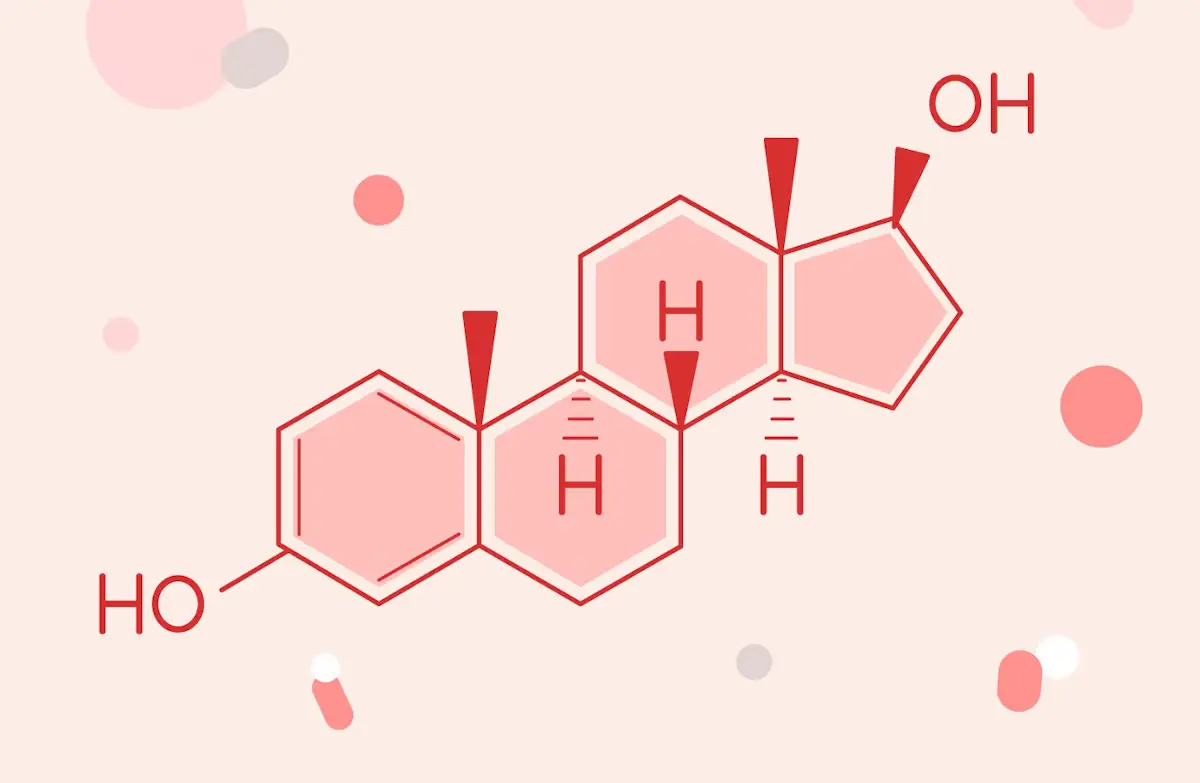Yes – estrogen can influence mood and emotions by supporting neurotransmitters linked to stress regulation, emotional balance, and overall mental clarity. During perimenopause and menopause, declining estrogen levels may contribute to mood swings, irritability, or anxiety.
At SensIQ, Dr. Luke Barr and his team provide evidence-based guidance to help women understand these changes and explore safe, individualized options for restoring clarity.
Key Takeaways
- Estrogen can influence brain pathways tied to mood, and therapy may help reduce mood swings or depressive symptoms in some women, especially during perimenopause.
- The benefits of estrogen vary widely, with stronger effects in women whose mood changes are linked to hormonal fluctuations rather than major depressive disorder.
- Treatment options include oral and transdermal forms, as well as non-hormonal alternatives, each carrying distinct benefits and side effects that require medical oversight.
- Low estrogen levels are associated with symptoms such as irritability, poor concentration, and anxiety, highlighting the importance of proper evaluation.
- Safe use depends on individual risk factors, monitoring, and professional guidance, as estrogen therapy carries both potential benefits and significant risks.
Estrogen and Mood: The Core Answer
Estrogen interacts with brain pathways that regulate mood and emotion. Research suggests that in some women, therapy targeting estrogen can improve mood swings and reduce depressive symptoms, while in others the effect may be limited. This is why responses differ from person to person.
Does estrogen help mood swings?
Fluctuating estrogen and progesterone levels can contribute to mood swings. In some cases, stabilizing hormone balance with therapy may reduce intensity. However, benefits are not universal, and lifestyle factors such as sleep, diet, and stress management remain important.
Does estrogen improve mood and anger?
Evidence shows that estrogen can influence neurotransmitters linked to irritability and anger¹. Some women experience more calm with higher levels of estrogen, but treatment decisions must weigh benefits against possible side effects.
When estrogen depression relief is limited
Estrogen therapy is not a cure for depression. For some women, depressive symptoms relate more to stress hormone activity from adrenal glands or other medical factors. A medical center evaluation can help identify if hormonal fluctuations or another mood disorder is the main cause.
A systematic review found that estrogen therapy may reduce depressive symptoms in perimenopausal women, but results are mixed and effects are often stronger in women with hormone-related mood disorder than in those with major depressive disorder ².
How Estrogen Affects the Brain and Behavior
The effect of estrogens extends beyond reproduction. Estrogenic effects influence brain chemistry, memory, and emotional responses. This is why hormone imbalance may feel like more than stress – it reflects deep biological processes.
Stress and estrogen connections
Stress and estrogen interact in complex ways. High stress hormone levels from the adrenal glands can lower estrogen affect on the brain. This may lead to anxiety and depression or elevated blood pressure if not addressed.
Does estrogen make you emotional or cry?
Some women experience sudden tears or stronger reactions during hormonal fluctuations. This does not mean weakness; it is a normal sign of estrogen affect on brain circuits involved in emotion.
Estrogen’s effect on the female brain
Estrogen supports areas of the brain tied to learning, memory, and emotional control. Research notes estrogenic effects on serotonin and dopamine, which may explain shifts in mood disorder risks during perimenopause.
How estrogen affects behavior in females
Changes in sex hormones influence reproductive systems but also everyday behavior. Women experience shifts in motivation, sleep, and stress response when estrogen and progesterone levels fluctuate.
Low Estrogen and Mental Health

Mental symptoms of low estrogen
Low estrogen is linked to depressive symptoms, poor concentration, and irritability. Some women describe this as a feeling of brain fog or a loss of mental sharpness. These symptoms can overlap with those of common stress, making a proper evaluation essential.
Low estrogen and mood changes
Hormone imbalance often triggers mood changes like anxiety and depression. Recognizing these patterns helps distinguish between normal life stress and biological causes associated with lower estrogen levels.
Estrogen Therapy and Treatment Options
Different therapies aim to restore balance, but the results depend on the timing, dose, and delivery method.
What happens when you start estrogen
When therapy begins, women may notice fewer mood swings, improved sleep, or reduced hot flashes. Still, side effects such as weight gain or breast tenderness may appear. Ongoing medical review is required.
Does estrogen cream or patch help mood?
Topical creams and patches provide steady hormone release. Some studies suggest these methods improve the stability of estrogen and progesterone levels, reducing sharp mood swings. Yet responses vary, so professional guidance is needed.
Transdermal vs. oral therapy
Transdermal forms (patches, gels) bypass the liver and may cause fewer side effects such as changes in blood pressure. Oral therapy may be more convenient for some, but it carries different risks. A clinician can help match the option to an individual’s personal health needs.
Non-hormonal alternatives for mood
Not all women are candidates for estrogen therapy. Non-hormonal approaches include stress management, sleep hygiene, and supplements reviewed by experts. At SensIQ, Dr. Luke Barr emphasizes evidence-based, non-hormonal strategies when hormone therapy is not suitable.
Benefits and Risks of Estrogen Therapy
Estrogen benefits and positive side effects
Reported benefits include better sleep, fewer hot flashes, and improved mood stability. Some women also report enhanced concentration and energy. Positive side effects may extend to bone health and skin elasticity.
Risks and who should avoid therapy
Estrogen therapy carries risks. Women with certain cancers, clotting disorders, or uncontrolled blood pressure should avoid it. Side effects can include nausea, weight gain, and breast tenderness.
Reviews also emphasize that timing and individual medical history strongly influence both benefits and risks of therapy⁴. Medical supervision ensures safe evaluation of estrogenic effects before therapy begins.
Safe Use, FDA Guidance, and Next Steps

Supplements vs. prescriptions
Prescription hormones are FDA-regulated, while supplements are not held to the same medical center standards. This means that claims about supplements must be made cautiously and should always be discussed with a clinician.
Doctor-reviewed monitoring and safety
Regular monitoring helps manage side effects and prevent complications. Blood tests, blood pressure checks, and symptom reviews ensure safe continuation or adjustment of therapy.
Questions to ask your clinician
- Could my depressive symptoms be linked to hormonal fluctuations?
- How do estrogen and progesterone levels affect my case?
- What non-hormonal supports might help me manage stress and mood disorder symptoms?
Find your personalized protocol: free quiz
At SensIQ, women experience validation and clarity through a free quiz that identifies key concerns. The personalized plan provides guidance on whether the Calm + Focus or Sleep + Calm protocols are suitable. With expert oversight from Dr. Luke Barr, this empowers women to take safe and informed steps toward achieving balance.
References
- Soares, C. N., & Frey, B. N. (2010). Challenges and opportunities to manage depression during the menopause transition and beyond. Psychiatric Clinics of North America, 33(2), 295–308. https://doi.org/10.1016/j.psc.2010.01.007
- Yin, F., Yao, J., Sancheti, H., Feng, T., Melcangi, R. C., Morgan, T. E., & Cadenas, E. (2015). The role of astroglia in estrogen’s effects on brain function. Aging-US, 7(5), 389–401. https://doi.org/10.18632/aging.100743


